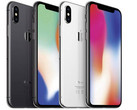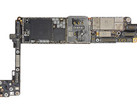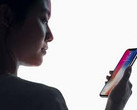Apple’s new iPhones are here, and while the iPhone XS improves on the iPhone X in many ways, there’s one area where the XS falls behind: battery capacity. That could be troublesome for the iPhone XS; its battery is a bit smaller than the iPhone X’s, a device that struggled with battery life.
China’s TENAA requires that phone manufacturers disclose the actual battery capacity of all new phones in mAh in an effort to dispel confusion from the typical marketing fluff surrounding battery life. That’s good for consumers, as Apple is notorious for not clearly listing the iPhone’s specifications anywhere in their own literature. Thanks to TENAA, we know that the iPhone X’s battery had a fairly small 2716 mAh capacity spread across two cells. We have also learned that the iPhone XS has a smaller 2658 mAh battery, even though the battery is a solid piece.
That’s not great news. The iPhone X lasted about 9.5 hours in our own WiFi battery test, coming in well behind most other flagships last year. The bevy of features and sensors onboard are likely to blame, and while the iPhone XS’s A12 Bionic SoC should be more efficient, the smaller battery may mean that battery life is a bit worse. Considering most Android flagships have battery capacities in the 3300-4000 mAh range and SoC efficiency is getting better every year, road warriors may want to look outside of Cupertino for their next phone.
Of course, we will have an in-depth look at the battery life of the iPhone XS, including how it handles multiple use cases, in our review. Be on the lookout over the next couple of weeks for our take on the iPhone XS.


















